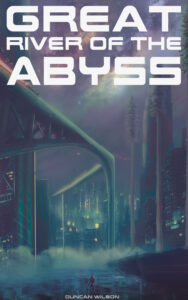When I was a young man, my uncle summoned me, much as I have summoned you today. I went to my uncle, for I was his favorite, indeed I was the only member of the family he spoke with at the time. I found him in the care of nurses, for his health was failing him rapidly. I was conducted into his presence and sat beside him that I might comfort him as he faced the inevitable. He had a crazed look about him, as if he were a man hunted, haunted, hounded by some rapacious and ravenous specter of the past. It was a look I was all too familiar with. Yet, I sat, silently, as he stared frightfully about, looking every which way for some menacing mirage that was all too real to his addled mind. He muttered every now and then, words of nonsense and words of curse, both as meaningless to me as they were purposeful to him. Perhaps they were some form of ward against the coming darkness, some manner of staving off that which all men must meet. However, I knew this was not the truth of it. No, his demons were not of his destiny, but of his antiquity, his madness a malicious and avaricious malady that had grown throughout his life until the man before me had been reduced to grasping at the folds of his robe and the arms of the chair in which he sat, seeking refuge in ephemeral reality from the ethereal nightmare that had been his beleaguered life.
While I watched, entranced, his face contorted through fears and emotions as he wrestled with his fading consciousness in order to bring forth some manner of words as to why he had summoned me. At long last, he was able to triumph over his diminishing faculties and while staring deep into my eyes he spoke in a voice both weary and frenzied, “Beware, your father! He is plotting against you even now!”
My shock at this pronouncement must not have been evident, or he was no longer capable of discerning such, as a smile of contentment struggled onto his lips as the rest of his visage was a war of other conflicting emotions. However, I could not let it rest at that. I loved my uncle dearly, I was the only one who had loved him in his later years as he descended into his madness. It was not in my nature to hate, but more than that, I pitied the man, for I knew what ailed him, and I feared it. I had to try, one final time, to reason with him, to try to unravel the perplexing animosity he held for our family, and my dear father in particular. Reaching out, I took up his feeble sweaty hand, stealing myself against the chill of his skin, and held it firmly as he instinctively jerked back. The contact had crystallized his face momentarily into a terrible countenance of horror, but that passed as his fond memories of me regained control of his dwindling sensibilities. I spoke, and his gaze snapped from my hand on his to my face. “Dear uncle, why do you say these things about my father, who has ever treated me, and you, with the utmost compassion? What makes you pronounce these heinous charges against your own blood?”
Anger now gripped him, and he snarled at me, not in hostility or contempt, but in frustration, as he always did when I rejected his guidance, and he launched fervently into an impassioned diatribe of all the past sins and wrongdoings of his loving sibling, many of them imagined, and most of the rest hyperbolic confoundments of minor slights long forgotten by all but him. He detailed, as he always did, in ever more elaborate invectives, how every possible misfortune was ultimately the consequence of some intricate machination of my father, or occasionally my brothers or some other more distant member of the family. He delved bitterly into long bygone family history of relations long since departed, many before my own time, and how most or all of them had long been plotting against him. I had heard it all before, far too often in fact, which is why I was able to recognize his usual harangue, his tiresome denunciations and accusations against kith and kin, from the babbling sounds that dribbled from his slackening mouth, his words rapidly degrading into a series of zealous noises that few could hope to comprehend. As his capacity for speech deserted him, his animosity swelled, and in the end, as the light faded from his eyes, the malice never left them, and his lifeless husk held fast the hatred which had so defined his sorrowful existence. In the end his demons had consumed him, his animus giving life to naught but antagonism and petty jealousies that had plagued our family incessantly for the majority of his life.
You may ask, as well you should, why did I hold such fondness for a man such as this, a man so animated with antipathy toward all others I held dear? I could not help but consider him with sympathy and compassion, for he held the family curse. In the depths of his delusions, he had long ago given leave to reason, he had long since surrendered to paranoia. You see, my father, whom I loved, had died decades before my uncle, yet still the surviving brother blamed the other for every ill that befell him. Indeed, eventually my uncle stopped believing my father was dead, and suspected his hand in every action against him, saw him around every corner, bedeviling his every enterprise. It mattered not what was real, it mattered little how many times I tried to convince him of the truth, all that mattered was his deep seated animosity toward his sibling, and his twisted logic that set all of his ills at the feet of his supposed adversary, and by extension all of the rest of his family, save me.
Yes, this was a family curse. My ancestors have struggled time and again with a particular family member, always male, who turns to this poisonous madness as his life progresses, a madness that turns that man into the bitterest of enemies toward almost all of his family, but always in particular against his brother, always his brother most of all. Again and again, throughout the ages, the madness seizes upon the hapless fellow, and he descends into obsession and specious judgment. The family is helpless to prevent it, try as they might, and some diligently attempted to forestall their beloved sons from spiraling into neurosis. Yet, without fail, it recurs again and again, every second generation. My uncle was the last. The next would be of your generation.
You see now, why I called you here, why I am telling you of our family curse. No, it is not what you think. It is not your brother who is falling prey to the madness. No, I’m afraid it is you. I know, you think it is your brother, and in the coming years, you will think everything is because of your brother, but it is not, and it never will be. It pains me beyond what mere words can convey to have to tell you, my dear nephew, that you are doomed to fall into an inescapable insanity, one in which you will fear and hate all those you love so dearly. I have seen the signs already, and they are unmistakable. Even now, I can see the apprehension in your eyes, the doubt and the paranoia starting to take hold. You are questioning, now, every word I tell you, as your mind tries to excuse all of the symptoms you yourself have noticed recently, as you try to explain to yourself how none of these are your fault, and all your suspicions about yourself are unfounded while all your fears about us are true.
There is no escape, I am sad to say, and even now my warning is too late. I should have told you long ago. But even then, would it have helped? Could this have been abated if you had known before the malady had manifested? I do not know, nor can we ever know. No, I’m afraid it is far too late, my warning far too little, and your future far too predictable. Farewell, dear nephew. Please try to remember me fondly, even as the mania sets in. Please try to recall that I tried to stave off your fate, as vain as my attempt was. Farewell, and may you know happiness in the next life, if not in this.

